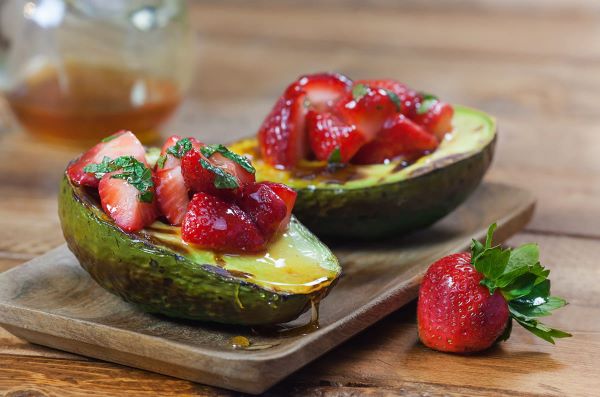Gout is a form of arthritis characterized by sudden, severe attacks of pain, redness, and tenderness in joints, often affecting the big toe. It is caused by elevated levels of uric acid in the blood, leading to the formation of urate crystals in the joints. Diet plays a significant role in managing gout, and certain fruits are particularly beneficial. This article explores the best fruits for gout health, backed by scientific evidence and research.
1. Cherries:
Scientific Evidence: Numerous studies have highlighted the benefits of cherries for gout sufferers. A study published in Arthritis & Rheumatism found that cherry consumption reduced the risk of gout attacks by 35%. Another study in The Journal of Nutrition indicated that cherries lower serum uric acid levels and reduce inflammation. (Source)
Benefits: Cherries contain anthocyanins and other antioxidants that have anti-inflammatory effects and help lower uric acid levels.
Use: Consuming fresh cherries or cherry juice regularly can help prevent gout flare-ups.
2. Strawberries:
Scientific Evidence: Strawberries are rich in vitamin C and antioxidants, which can help reduce uric acid levels. Research in The American Journal of Clinical Nutrition found that high vitamin C intake is associated with lower serum uric acid concentrations. (Source)
Benefits: The high vitamin C content in strawberries helps reduce inflammation and uric acid levels, potentially lowering the risk of gout attacks.
Use: Add fresh strawberries to your diet by eating them as a snack or adding them to smoothies and salads.
Also, watch web stories: What’s the advantage of lemon water?
3. Blueberries:
Scientific Evidence: Blueberries are high in antioxidants, particularly anthocyanins, which have been shown to reduce inflammation. A study in The Journal of Agricultural and Food Chemistry highlighted the anti-inflammatory properties of blueberries. (Source)
Benefits: Blueberries help in reducing oxidative stress and inflammation, which are crucial in managing gout symptoms.
Use: Incorporate blueberries into your diet by adding them to your breakfast cereal, yogurt, or smoothies.
4. Pineapple:
Scientific Evidence: Pineapple contains bromelain, an enzyme with anti-inflammatory properties. Research published in Planta Medica suggests that bromelain can reduce inflammation and pain associated with gout. (Source)
Benefits: Bromelain in pineapple helps reduce swelling and inflammation in gout-affected joints.
Use: Eat fresh pineapple or drink pineapple juice to take advantage of its anti-inflammatory benefits.
5. Apples:
Scientific Evidence: Apples are rich in dietary fiber and contain malic acid, which helps neutralize uric acid. A study in The Journal of Agricultural and Food Chemistry discusses the role of dietary fiber in reducing serum uric acid levels. (Source)
Benefits: The fiber and malic acid in apples can help reduce uric acid levels and improve overall health.
Use: Include apples in your diet by eating them fresh or adding them to salads and smoothies.
Also, read: Apples and Weight Loss: Did you Know Apples Can Help you Lose Weight?
6. Citrus Fruits (Oranges, Lemons, and Grapefruits):
Scientific Evidence: Citrus fruits are high in vitamin C, which has been shown to lower uric acid levels. A study in The Journal of Rheumatology found that vitamin C supplementation significantly reduced serum uric acid levels. (Source)
Benefits: The high vitamin C content in citrus fruits helps prevent gout flare-ups and reduce inflammation.
Use: Drink fresh citrus juice or add slices of citrus fruits to your water and salads.
7. Papaya:
Scientific Evidence: Papaya is rich in vitamin C and papain, an enzyme that helps reduce inflammation. Research in The Journal of Clinical Gastroenterology suggests that papain can help alleviate pain and inflammation.
Benefits: The anti-inflammatory properties of papaya help manage gout symptoms and reduce uric acid levels.
Use: Eat fresh papaya or add it to your smoothies for a nutritious boost.
8. Bananas:
Scientific Evidence: Bananas are high in potassium, which helps the body tissues and fluids maintain a healthy balance. A study in The Clinical Journal of the American Society of Nephrology discusses the role of potassium in reducing the risk of gout. (Source)
Benefits: The potassium in bananas helps prevent uric acid crystal formation in the joints.
Use: Eat bananas as a snack or add them to your breakfast cereal and smoothies.
9. Avocados:
Scientific Evidence: Avocados are rich in healthy fats, fiber, and antioxidants. A study in Nutrients highlights the anti-inflammatory effects of avocados.
Benefits: The anti-inflammatory properties of avocados can help reduce gout symptoms and promote overall joint health.
Use: Include avocados in your diet by adding them to salads, and sandwiches, or eating them on toast.
10. Grapes:
Scientific Evidence: Grapes contain antioxidants like resveratrol, which have anti-inflammatory properties. Research in The Journal of Nutritional Biochemistry suggests that resveratrol can reduce inflammation and oxidative stress. (Source)
Benefits: Grapes help lower uric acid levels and reduce inflammation associated with gout.
Use: Eat fresh grapes or add them to your salads and snacks.
Conclusion:
Incorporating these fruits into your diet can significantly benefit those suffering from gout by reducing uric acid levels and inflammation. While these fruits can help manage gout symptoms, it is also essential to maintain a balanced diet and avoid foods that trigger gout attacks. Regular exercise and proper hydration are equally important in managing gout effectively.





